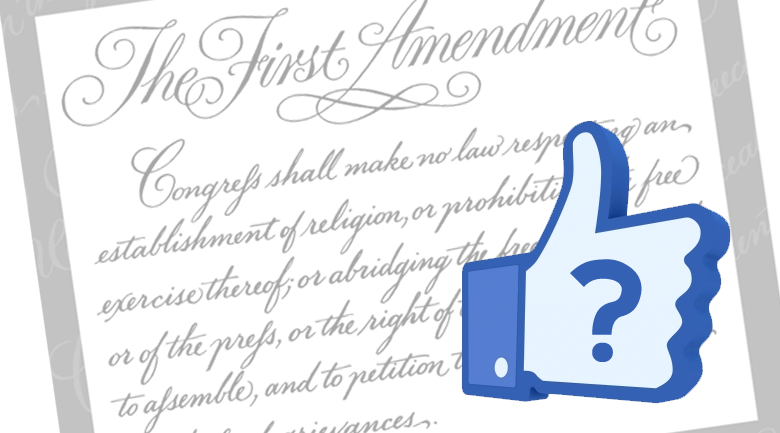How much time do you spend on social media a day? Do you spend 10 minutes scrolling through Instagram while you are lying in bed in the morning? Do you open your browser during a particularly boring lecture and peruse Facebook? Do you send a Snap to your friend to keep your streak? I know I do. People all over the globe spend an average of about 135 minutes a day on social media. Before you click away — know this is not one of those op-eds which will leave you feeling unproductive and guilty. Instead, I am utilizing these numbers and your experience to illustrate how much of our lives have moved online. It only follows that as more Americans embrace social media and spend time on these sites, we are beginning to discover how our rights, specifically the First Amendment, translate online.
This past summer the United States Supreme Court unanimously struck down a North Carolina law that banned convicted sex offenders from joining social media sites which allow minors to also join. The Justices defined social media as a “modern public square” in their Majority Opinion document, therefore protecting access to social media under the First Amendment. This case, the Court’s inaugural ruling on social media, is showing a cultural and legal shift in our system as our nation’s highest court has rejected the petition of social media cases in the past. Leveraging the Court’s new definition of social media and apparent willingness to listen to such cases, many more social media based lawsuits have been filed. If accepted, these suits will allow for the Supreme Court to more concretely define our online rights.
President Donald Trump is notorious for his social media use. He has used his Twitter to announce his military transgender ban, attack members of the media and mourn the loss of life after the Las Vegas shooting. While his number of followers is impressive, over 40 million, even more notable is each posted tweet is considered presidential record by the United States National Archives. Because Trump uses his personal Twitter account to communicate his politics to the American people, he has opened himself up to a viewpoint discrimination lawsuit as he has blocked many other users based solely on their dissenting opinions. The group representing the plaintiffs, The Knight First Amendment Institute, argues by blocking users based on their political opinions, President Trump is violating their rights to free speech. Utilizing the above mentioned Supreme Court definition of social media, the institute may be able to win this case based on precedent as Trump opened a public forum on his agenda and then restricted access.
The issue here is not how much time we spend on social networking sites as studies show it is only going to increase. Instead, the issue is what rights are our digital persona afforded. Are we allowed to unfriend a neighbor based on political affiliation after we open the conversation? Are we allowed to express our own opinions without repercussions? Are we allowed to regulate those registered sex offenders have contact with online? In an increasingly digital world, we must reconcile our internet presence with rights afforded to all of us by the constitution.
https://www.statista.com/statistics/433871/daily-social-media-usage-worldwide/
https://www.wired.com/story/should-facebook-and-twitter-be-regulated-under-the-first-amendment/
http://theconversation.com/donald-trumps-tweets-are-now-presidential-records-71973



